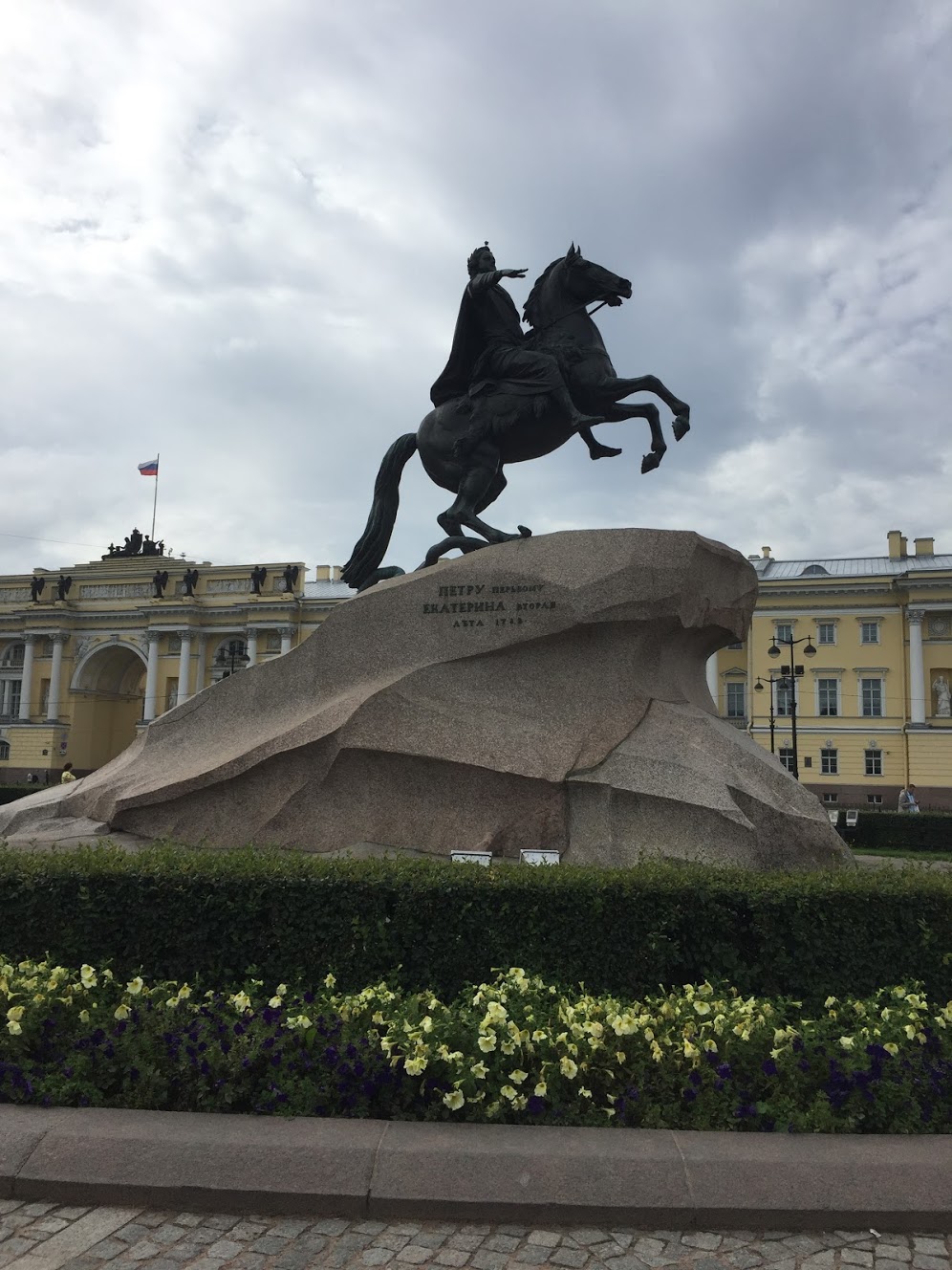
I think one of the biggest challenges I’ve faced in my study abroad experience is making friends with students of my own age. Russian college students my age are usually pretty shy at first, and you definitely have to approach them first. This can be absolutely terrifying if you’re feeling slightly intimidated and already concerned about your language abilities. Then there’s the added factor that Russian is a live language, and unlike our understanding professors, in the non-classroom setting, people speak quickly, conversationally, and often with rather unclear articulation. Russian intonation is also difficult because it’s very direct and strong. To my American ears, Russian intonation can sound aggressive or forceful because of the strong accented emphases (intonation Pattern #2!) when actually it could just be someone being emphatic and expressive.
Another thing I’ve noticed is that Russians are very direct. Americans seem to speak with a lot of “padding” and “cushioning.” I remember learning early on in maybe elementary school about the sandwich technique—say something nice, something critical, something nice. Here in Russia, there is no sandwich. People will tell you upfront and publicly that you’re acting sketch, missed the point, or your paper is subpar or that you shouldn’t use an elevator if you’re not old. Grades and commentary are also published publicly. There’s no “politically correct” culture.
Also, no one is interested in small talk. Given the tense relationship between America and Russia, I was nervous about navigating the difference of views, but there was definitely no hiding. From the very first night of staying with my host mom, I was asked about how I felt about Putin, Trump, Ukraine, homosexuality, and Jewish people…and the very first academic class I walked into I was asked by the professor about my personal view of communism and the Revolution of 1917. Mouths dropped literally open as my American friends and I stared at each other in disbelief. I also noticed in casual conversation with cashiers or even talking to my own peers, people are also not afraid to ask you about how much your parents make or how expensive your clothes are or other questions that would otherwise seem very rude (like I don’t even know the answers for these questions from all my American friends back home).
It can be very disconcerting at first to skip the “how’s the weather stage” and jump right into sociopolitical views and money but in a way, I’ve enjoyed being able to speak about real things. St. Petersburg, Russia is a highly cultured place. Everyone goes often to the theater, ballet, opera, or Philharmonic. People know their art, their books, their poems, and their history, and it’s just absolutely fascinating to get into a debate with someone over Brother’s Karamazov or the suprematist art movement and Malevich’s Black Square. I can hum Prokofiev’s Romeo and Juliet and someone else will be able to recognize it and hum with me.
For me, so far the best way I’ve found to navigate controversial conversations or classes is to just listen and always ask why someone thinks the way they do and what happened in their lives or what they were exposed to that have helped them form their opinions. People are just people, and everyone’s opinions come from somewhere. I’ve been awakened to the power of the objective, respectful listening and asking questions. Once I quiet myself and let go of whatever righteous or defensive feelings I might have, I’ve realized there’s much I can learn simply by being exposed to these ideas and to completely opposite, different viewpoints.
I think it’s in these moments that I realize just how powerful study abroad is, and how happy I am with my decision to go to a more “off-the-beaten” country.
For one, in terms of language immersion, it’s been incredible. While it’s not totally remote and you still can find English, it’s really not that dominant compared to like when I visited Tallinn, Estonia or Budapest, Hungary and signs were in English and pretty much everyone spoke perfect English. In my everyday interactions such as buying food from the grocery store or buying my bus tickets, I’ve been forced to use Russian and even though it can be embarrassing or awkward, every situation has made me improve.
For another, I have never been so challenged and thought so much about what I believe and where I come from. My Soviet music history class shows the perspective of the Russians during the Cold War. My Russian host mother provides the Russian perspective on current events. My Russian peers challenge my beliefs and my behavior as an American. And I can’t help but think as I approach the end about just how good it’s been for me. The idea of history as a prize being written by the victors has never been quite so tangible as now. The idea that there are no absolutes. That there’s always another side….
Of course, this doesn’t mean that I’ve changed my own beliefs or behavior. I am an American citizen—a product of my upbringing in rural Montana and my liberal arts education, but I am just a little bit more aware about what’s out there in the world and the myriad of ideas and beliefs that exist. It’s like my ideas have gone from 180 to 360. There’s an entire 3-D sphere of perspectives and it’s been an exciting challenge to expand my ideas of who I am, what I believe in, and how I want to shape the world.



